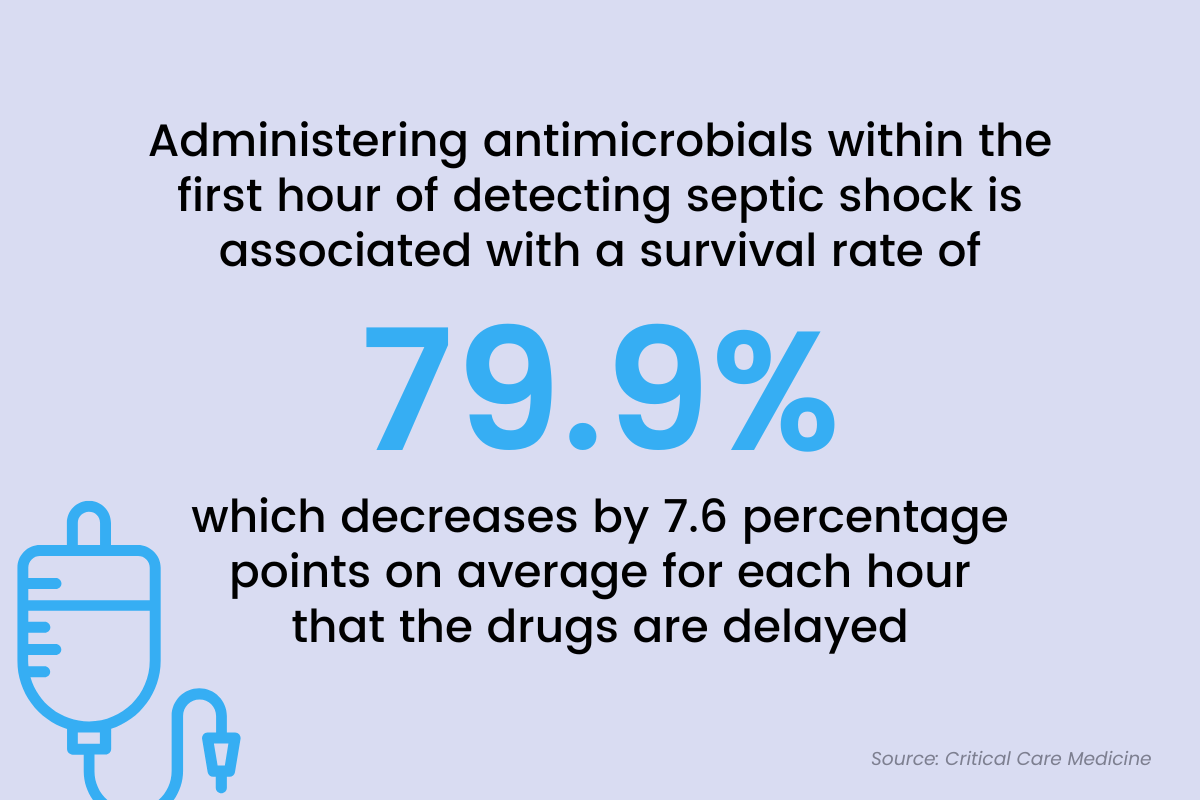3 min read
Using Incident Reporting in Healthcare to Improve Sepsis Outcomes
Performance Health Partners
May 30, 2023

Incident reporting in healthcare is a tool for preventing sepsis, a potentially life-threatening condition. By capturing and analyzing incidents, healthcare organizations can identify areas of improvement to enhance patient safety and outcomes. In this blog post, we’ll explore the importance of incident reporting in healthcare and delve into effective strategies that can be employed to mitigate sepsis risks, minimize mortality rates, and cultivate a culture of continuous improvement in patient care.
Sepsis – a critical condition triggered by an exaggerated immune response to infection – affects millions worldwide. If not promptly diagnosed and managed, it can escalate to septic shock, multiple organ failure, and even death.
Sepsis accounts for an estimated 1.7 million cases annually in the United States alone, culminating in 350,000 fatalities. This implies that roughly 30% of adult sepsis patients do not survive.
Often resulting from healthcare-acquired infections, sepsis is a frequent adverse event during care delivery. Because identification of this condition is often delayed, it was also named one of the top patient safety concerns in 2023, underscoring the importance of early detection and treatment in enhancing patient outcomes and decreasing mortality rates.
Incident reporting in healthcare represents a powerful tool for identifying improvement areas and averting future incidents. It involves identifying and analyzing adverse events, near misses, and other incidents that occur in healthcare settings, including those related to sepsis. Reporting these events allows healthcare providers to spot patterns and trends and adopt proactive steps to improve patient outcomes.
Benefits of Incident Reporting in Healthcare
Below, we outline several benefits of incident reporting in healthcare related to sepsis diagnosis, treatment, and outcomes.
Improved Diagnosis and Treatment
Incident reporting in healthcare can improve sepsis diagnosis and treatment precision. If a sepsis patient is misdiagnosed or inappropriately treated, this can be reported and analyzed to better understand why this happened, what went awry, and how to prevent similar events from happening again.
This information is vital considering that initiating antimicrobials within the first hour of recognizing septic shock is associated with a 79.9% survival rate, which decreases by 7.6 percentage points on average for each hour that the drugs are delayed.
Healthcare providers can leverage this data to develop better diagnostic criteria and treatment protocols for sepsis, which ultimately leads to improved patient outcomes.

Increased Awareness
Incident reporting can also increase sepsis awareness among healthcare providers. Given that sepsis is currently the leading cause of death in US hospitals, providers more aware of sepsis signs, symptoms, and the importance of early detection and treatment are more likely to identify sepsis in their patients and deliver appropriate care. This can expedite diagnosis and treatment, significantly improving patient outcomes.
Reduction in Healthcare-Associated Infections (HAIs)
HAIs, a substantial risk factor for sepsis, and a growing cause of concern for patient safety, can be reduced through incident reporting by identifying areas for improvement in infection prevention and control processes. By identifying and addressing the root causes of HAIs, a well-established incident reporting process enables healthcare organizations to foster a robust culture of infection prevention and control, reducing the risk of HAIs that could lead to sepsis.
Improved Hand Hygiene Compliance
Healthcare providers can utilize incident reporting data to identify trends and patterns in hand hygiene compliance, targeting interventions such as education and training programs to enhance hygiene practices in problematic areas.
A three-year observational study found that a 10% improvement in hand hygiene led to a 6% reduction in overall HAIs.
Moreover, incident reporting in healthcare can help organizations pinpoint and address underlying issues contributing to non-compliance with hand hygiene protocols.
Smarter Improvement Decisions
Incident reporting can aid healthcare organizations in monitoring the effectiveness of sepsis outcome improvement interventions. By tracking incident reports over time, healthcare providers can evaluate whether interventions have led to enhancements, and can take action to either modify or enhance practices and processes for efficiency.
Overcoming Barriers to Incident Reporting
The following strategies can be implemented to increase sepsis-related incident reporting:
- Promote a culture of safety: Encouraging healthcare employees to report incidents and near-misses in a blame-free environment can cultivate a culture of safety. Leadership should also provide consistent feedback on incident reporting outcomes, highlighting its significance in patient safety. This includes establishing sepsis treatment safety goals complete with action plans, metrics, and clear communication of treatment protocols, potentially incorporating early warning scoring systems into electronic health records (EHR). Routine safety huddles can also be advantageous, offering real-time updates and reminders about infection risks.
- Provide education and training: Equipping healthcare staff with information on sepsis signs and symptoms and emphasizing the necessity of early detection and treatment is essential. This information can be shared through in-person workshops, online courses, or other training methods. Additionally, patients and their families should be educated about infection prevention, warning signs, and the appropriate course of action if symptoms develop. Training in incident reporting and the importance of accurate, thorough reporting is also essential.
- Adopt technology solutions: Technology like incident reporting software can simplify and facilitate the reporting process and enhance the accuracy and completeness of reports. An incident management system can simplify and streamline reporting, with built-in templates and prompts ensuring all necessary information is included. Additionally, sepsis diagnostic tools should be seamlessly integrated into the clinical workflow for ease of use and processing.
Incident reporting in healthcare serves as a valuable tool for improving sepsis outcomes and lowering mortality rates. It aids in identifying patterns and trends, refining sepsis diagnosis and treatment accuracy, and augmenting awareness among healthcare providers.
By executing strategies to increase reporting frequency, healthcare organizations can further improve patient outcomes and alleviate sepsis's burden on patients and their families. It's vital to remember that incident reporting is not a one-off event, but a continuous process necessitating ongoing monitoring and analysis. Hence, healthcare organizations should regularly review incident reports and pinpoint areas for improvement to prevent future occurrences.
As the prevalence of sepsis continues to climb, incident reporting will increasingly play a vital role in combating this life-threatening condition. Through collective efforts, healthcare providers can significantly impact sepsis prevention, diagnosis, and treatment, ultimately enhancing the lives of countless patients.


